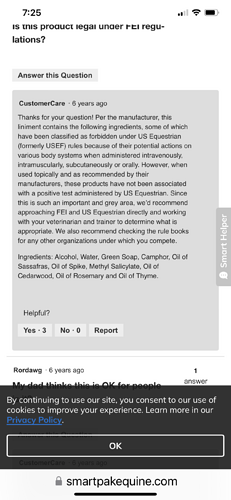I would find a brush set you really like and recommend the set to owners if their brushes aren’t great. I typically use at least 3 different brushes and a curry for regular grooming - a stiff, but finer bristled brush for heavier dirt, a long bristled flicker type brush to flick away dust and dirt, and then a soft brush with a good amount of natural oil for finishing. I prefer natural haired brushes, although sometimes I’ll use a synthetic flicker brush. Winners Circle makes good but affordable brushes I like.
If I’m tacking up horses quickly, I will use a coat conditioner spray on the coat after currying and then brush. That little bit of moisture helps get rid of dust quicker and makes grooming go faster. In a pinch I’ll dip the tip of the brush bristles in water (using the stiffer brush or a flick brush). Not too much that it makes the coat wet but enough to control the dust. Avoid putting coat conditioner on the saddle pad area before rides.
Always ask what kind of hoof oil or conditioner the owner wants you to use. Some owners don’t want it at all, some do. It can loosen shoe nails, but it can really polish a horse if permitted.
Avoid hair conditioner with silicone if possible. It can dry out the hair follicle. Take care with tails. Over brushing will cause breaks. If I’m going to brush out, I’ll use a good conditioner spray first so I’m not breaking the hair. I use a pick for hair a lot, too.
When braiding, quick braid is great but even a cheap wet hair gel on wet hair before braiding can do well.
A wet rag and saddle soap go a long way, but always ask the owner what type of saddle cleaner they prefer and how they want their tack cleaned. You don’t want to be responsible for damaged tack. Always clean bits after each use. You can simply dip in water before they dry to make it quick and easy.
If horses are in training, don’t obsess, be timely, and stay on the trainer’s schedule. Arrive early if needed. Sometimes I would arrive early in the AM, groom each horse very well, then do a quick tidy up before being saddled to save time through the day. Talk to the owner and whoever is riding and figure out their schedule. Never have them waiting on you.
Ask the owner if they want to use a certain liniment after rides. Some are not permitted for shows. Avoid tons of shampooing. This will strip coats of oil. I prefer vetrolin liniment because it deters flies, is a muscle brace, doesn’t strip oil and but it is not show legal. (Correction, Sore No More is show legal).
Communicate. Ask lots of questions. Find out exactly what they want and what schedule they want. Make suggestions on products you really love. Be pleasant, professional, timely and have an eye for detail. It will go a long way.
 )
)


